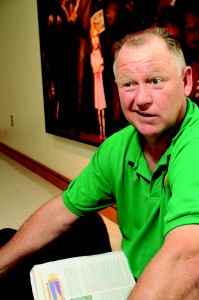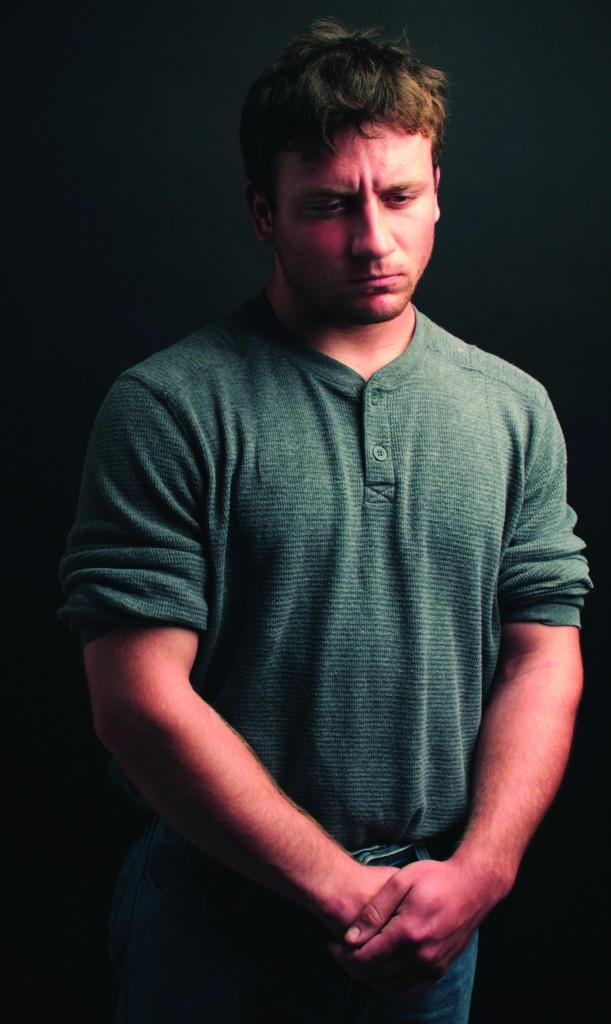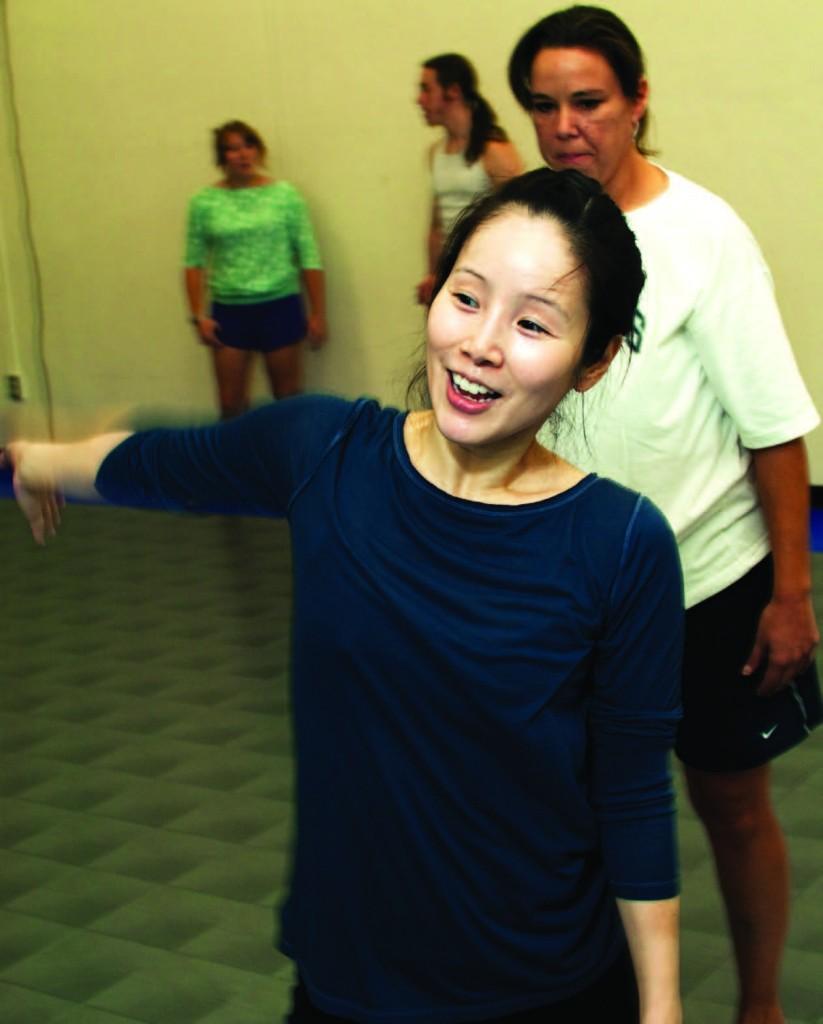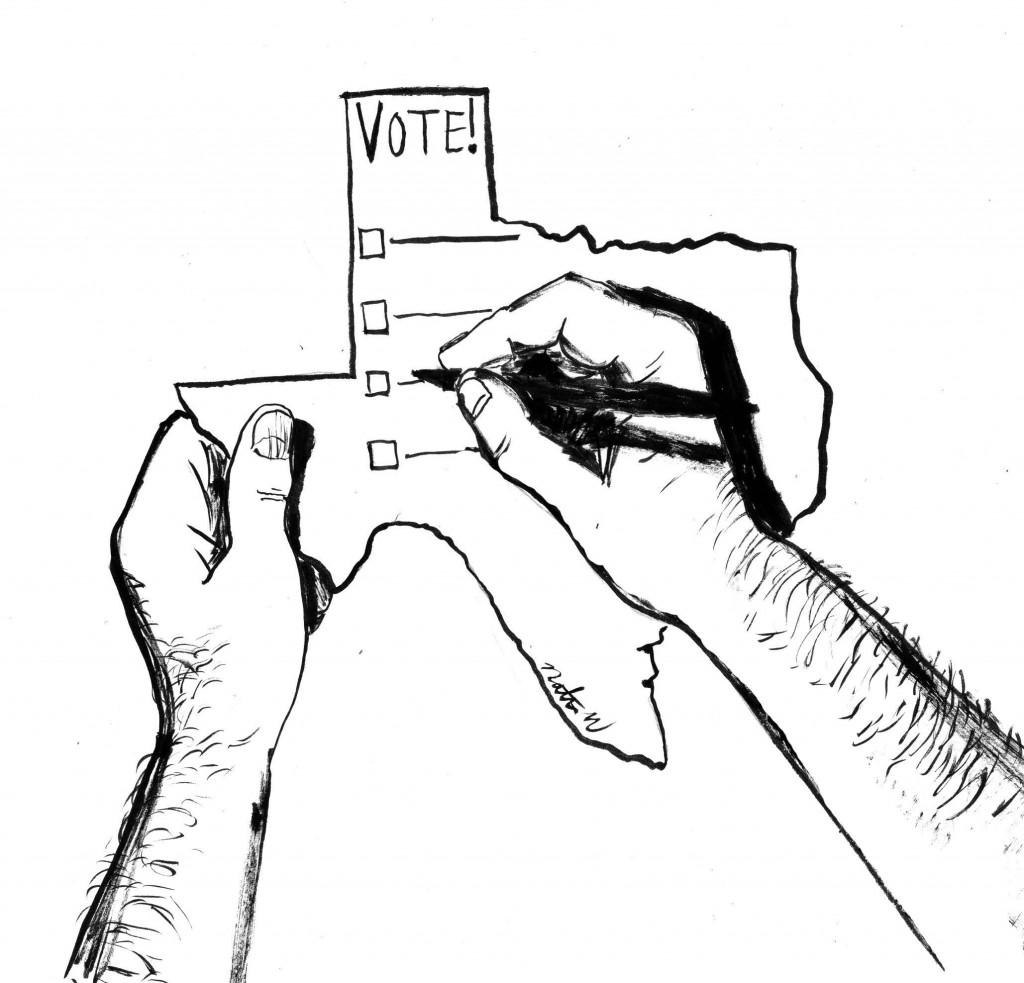
By Marley Malenfant/se news editor
SE Campus student Ed Fitzgerald sits in the Art Corridor waiting for class. Fitzgerald has worked as a professional clown for 20 years and has taught classes at UTA on how to be a clown. He’s taking core classes to reach his goal of becoming a nurse. Photo by Casey Holder/The Collegian
SE student Ed Fitzgerald has a résumé that would make Krusty, Ronald McDonald and Homey the Clown jealous.
Fitzgerald has worked as a professional clown since 1991 but said most know him by his stage name “Buckle.” In 1995, Fitzgerald was an assistant in a class that teaches students how to be a clown at the University of Texas at Arlington. He also served on the board of directors for the Texas Clown Association and was competition chairman from 2007 to 2009.
“I became a clown as a favor to a friend of mine who was starting a clown class,” he said. “I realized I’ve been training for this my entire life. I was doing silly magic tricks back in high school.”
It wasn’t long before Fitzgerald moved from student to teacher.
“In 1995, I took over this lady’s class,” he said. “She went out of town and said ‘Here, you take over.’”
Fitzgerald said the class’ focus is the history of clowning, character development, stage performance and instructions on performing tricks. The class gives students an idea about what being a clown is really about, he said.
“I tell people that want to be clowns that they should get some help,” he said. “The ones that dress up for Halloween, we call them lipstick clowns. If this is a job, you have to look and act like a pro. You can’t go looking like a bum.”
Fitzgerald said the job of being a clown comes with many stereotypes.
“When the public sees a clown, they just think of it as clowns,” he said. “Most of the clowns I know are women, but people don’t realize that.”
Fitzgerald noted the different types of clowns and said they have certain ranks.
“There is the white face clown, the Auguste clown, the hobo clown and the tramp clown,” he said. “The white face is always in charge. The Auguste clown is the prankster, and the hobo and tramp are the lowest of the clowns. Even though the hobo and tramp are lowest of the clowns, the hobo is never sad unlike the tramp.”
Fitzgerald said entertaining children can be a hard task, especially if the children are scared of clowns.
“Sometimes, we’re overpriced babysitters,” he said. “Parents panic when they got 40 kids coming over and they’re trying to figure out how to entertain them for an hour. If you’re going to be a clown, you have to be able to poke fun at yourself, but one of the most important attributes is having patience.”
Fitzgerald said if children have a fear of clowns, it’s because the parents were scared of clowns.
“Mom and Dad may have a problem with clowns but that doesn’t mean you should shove your beliefs on the kids,” he said. “I’ve done shows where the kid is terrified at first, but at the end of the show, the kid tells their parents they had a good time, and the parents will tell me.”
Fitzgerald said looking back, he wished he got into the clown industry earlier in his life. Fitzgerald said being a clown can be therapeutic.
“I was 35 before I decided I wanted to be a clown,” he said. “It’s like therapy. It keeps me sane. It releases society’s constraints. It’s fun. You’re free to do whatever you want.”
























